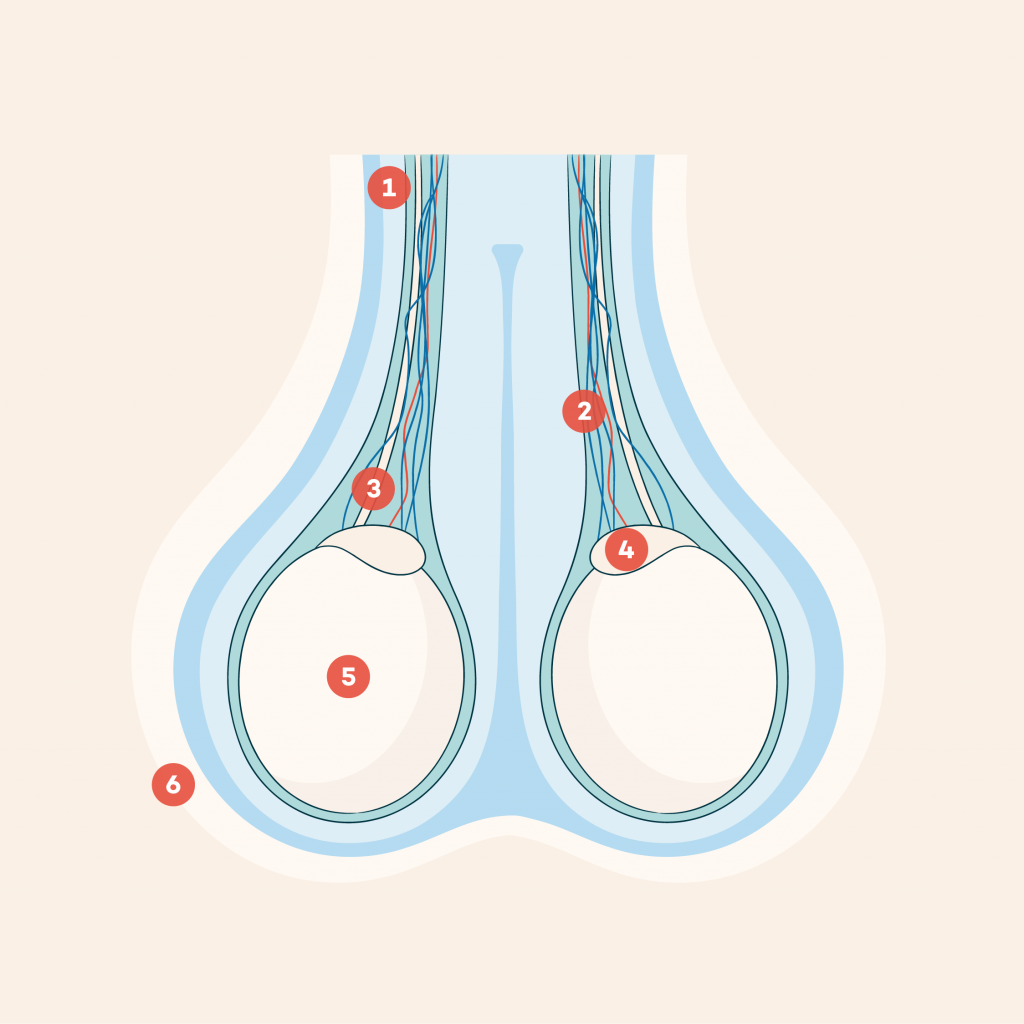Medically reviewed by
What is epididymitis?
Epididymitis is caused by infection, irritation, or injury of the epididymis – the thin, coiled tube that is found behind the testicles. It’s where the sperm are stored and mature before ejaculation.
Epididymitis is one of the most common causes of pain in the scrotum and can affect males at any age.
Sometimes epididymitis can occur at the same time as orchitis, resulting in a condition called epididymo-orchitis.
Scrotum and testicular anatomy

Anatomy key
- Spermatic tube
- Testicular arteries and veins
- Vas deferens
- Epididymis
- Testis
- Scrotum
Symptoms of epididymitis
Epididymitis causes pain and swelling in the scrotum, on one or both sides.
You might have pain when urinating, not be able to hold on, or need to urinate urgently or often.
Epididymitis can cause a discharge from the penis, or cause fever.

Over 2.4 million Australian men and boys live with incontinence.
Causes of epididymitis
Epididymitis occurs most often in men aged between about 20-40, usually in association with a sexually transmitted infection. In older men, infections by bacteria from the gastrointestinal tract are more common causes of epididymitis, arising from problems with urine flow.
In boys and young males who have not yet engaged in sexual activity, the most likely cause of epididymitis is from repetitive irritation of the epididymis during physical activity.
Subscribe to our newsletter

Diagnosis of epididymitis
Your doctor will need to examine you to diagnose epididymitis. They’ll look for swelling and redness of your scrotum. Your scrotum may feel warm and cause you some discomfort when touched.
Your doctor will probably ask for a urine sample to test for bacteria.
In some cases, your doctor might want you to have an ultrasound scan of your scrotum to rule out other possible causes of pain and swelling.
Treatment of epididymitis
Drinking lots of water can help to flush out some of the bacteria in your urinary system and help relieve epididymitis.
Epididymitis is usually treated with antibiotics. Your doctor might start you on them straight away, but you might need to change the type of antibiotic depending on your test results.
Health effects of epididymitis
If your epididymitis is caused by a sexually transmitted infection, you shouldn’t engage in sexual activity until the infection has gone. You should also tell your sexual partner(s) to get checked. You might need to change your sexual activity to avoid epididymitis coming back.
Rarely, epididymitis may have implications for your fertility.
Antibiotic treatment of epididymitis usually cures the problem, but it can come back if you don’t take your full course of antibiotics or follow other recommendations from your doctor.
What to do about epididymitis
If you have any pain or swelling in your scrotum, you should see your doctor about it straight away, to prevent it getting worse and to rule out problems that might be serious.













